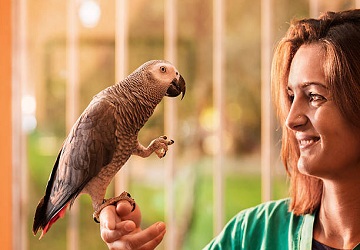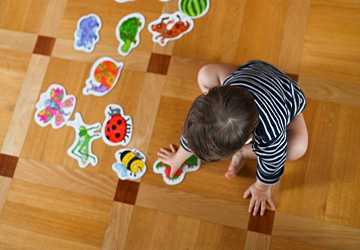How to Train Your Parrot: Tips for Effective Communication
Parrots are undoubtedly one of the most adorable and popular pet birds worldwide. With their vibrant feathers, playful personalities, and ability to mimic human speech, they bring endless joy and entertainment to our lives.
Few things can compare to the heartwarming sight of a parrot repeating our words and bringing a smile to our faces.
Parrots are cute and loving creatures, making them perfect companions for those seeking a unique and interactive pet.
Whether you are considering adopting a parrot or already have one, this blog post will provide essential tips on effectively training your parrot and establishing a solid communication bond.
The Nature of Parrots
Parrots are brilliant birds known for their social nature. They thrive on interaction, stimulation, and companionship. They require mental and physical engagement to remain happy and healthy.
Understanding their instincts and behaviors is crucial when training them. Parrots are curious and quick learners but can also be sensitive and easily stressed.
Building trust and establishing a positive relationship with your parrot is essential for successful training.
10 Effective Tips to Train Your Parrot
Let's begin to learn the tips to train your parrot. Here are the easy tips:

1.Get to Know Your Parrot's Nature
Take the time to observe and understand your parrot's body language, vocalizations, and behaviors. Each parrot has its unique personality and preferences.
Recognizing their cues will help you interpret their needs, emotions, and readiness for training.
2.Create a Comfortable Environment
Ensure that your parrot has a safe and comfortable living space. Provide a spacious cage, stimulating toys, perches of varying sizes, and a balanced diet.
A stress-free environment promotes learning and encourages your parrot to engage with you.
3.Establish a Bond of Trust
Building trust is crucial when training a parrot. Spend quality time with your parrot, engage in gentle interactions, and use positive reinforcement techniques such as praise, treats, and gentle petting.
Patience and consistency are crucial to earning your parrot's trust.
4.Potty Training
Teaching your parrot where to eliminate is an essential aspect of their training. Observe their behavior to identify their bathroom cues and consistently place them in a designated area, such as a newspaper or a bird-friendly litter box.
Reward them when they eliminate in the correct location.
5.Talking Training
Parrots are famous for their ability to mimic human speech. Start by speaking clearly and using simple words or phrases.
Repeat the desired words or phrases frequently and reward your parrot with treats or praise when they imitate you.
Gradually increase the complexity of the words and phrases over time.
6.Eating Training
Parrots can be trained to eat specific foods or to try new ones. Introduce a variety of fresh fruits, vegetables, and pellets to their diet.
Please encourage them to try new foods by offering them alongside their favorite treats. Use positive reinforcement and rewards to reinforce their willingness to try fresh foods.
7.Sleeping Training
Establishing a consistent sleep schedule is essential for your parrot's well-being. Create a quiet and dark sleeping area for them, away from disturbances.
Cover their cage partially or entirely during nighttime to give them a sense of security and promote quality sleep.
8.Socialization and Interaction
Parrots are social creatures and benefit significantly from companionship. Consider providing your parrot with a same-species companion or spend dedicated time interacting with them daily.
Socialization helps prevent loneliness and boredom, contributing to their happiness and well-being.
9.Encourage Play and Exercise
Parrots are active birds that require mental and physical stimulation. Please provide them with various toys, puzzles, and activities that challenge their problem-solving skills and encourage physical movement.
Rotate the toys regularly to keep them engaged and entertained.

10.Be Patient and Consistent
Training a parrot requires time, patience, and consistency. Set realistic goals and break the training process into small steps.
Celebrate each milestone and reward your parrot's progress. Remember, positive reinforcement and a calm demeanor are more effective than punishment or force.
Conclusion
Training your parrot is an enriching experience that strengthens the bond between you and your feathered friend.
By understanding the nature of parrots and using effective communication techniques, you can unlock their full potential and establish a loving and interactive relationship.
Remember to be patient, consistent, and always prioritize the well-being and happiness of your parrot.
With time, dedication, and plenty of love, your parrot will become a well-trained and cherished family member.




